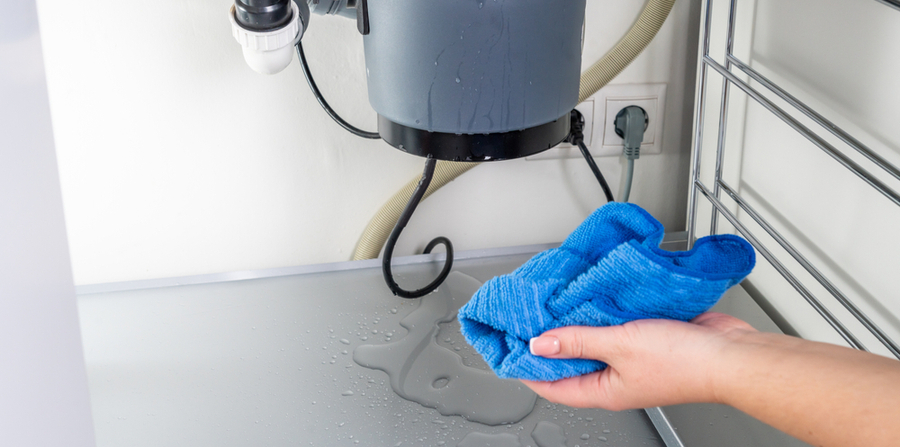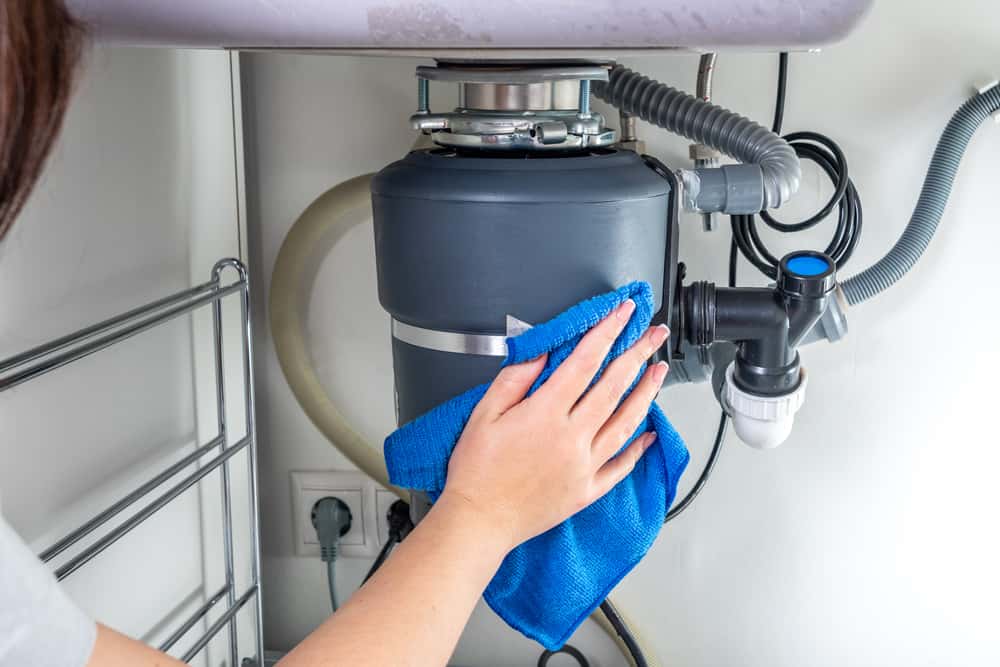Recommended Tips for Fixing a Leaking Waste Disposal Unit
Recommended Tips for Fixing a Leaking Waste Disposal Unit
Blog Article
Just how do you actually feel about The Handy Guide To Fixing Your Garbage Disposal Leaking?

Waste disposal unit are essential kitchen home appliances that assist in getting rid of food waste effectively. Nonetheless, a leaking garbage disposal can be an irritating and untidy problem to deal with. Fortunately, numerous leaks can be fixed easily with a couple of easy actions. In this post, we will review how to deal with a leaking waste disposal unit successfully.
Intro
Garbage disposals are set up under kitchen sinks and are designed to shred food waste into smaller pieces, allowing it to travel through the pipes system conveniently. While these tools are normally trusted, leaks can happen with time due to deterioration, loose connections, or damages to the system.
Step-by-Step Overview to Taking Care Of a Leaking Garbage Disposal
Shut off the Power
Before attempting any type of repair work, make sure that the power to the garbage disposal system is turned off to avoid the threat of electric shock.
Situate the Leak
Identify the specific location of the leak and establish the reason
Tighten Connections
Use a wrench to tighten up any type of loose connections between the disposal system and the pipes system.
Replace Seals or Gaskets
If the leak is because of worn seals or gaskets, remove the old parts and change them with brand-new ones.
Patching Cracks or Holes
For cracks or holes in the disposal device, usage epoxy or an appropriate patching product to seal the damaged area.
Determining the Source of the Leakage
Before attempting to take care of a leaking garbage disposal, it is necessary to determine the source of the leakage. This can generally be done via visual inspection or by performing basic examinations.
Visual Evaluation
Check the waste disposal unit system meticulously for any signs of water leak. Pay close attention to locations around seals, gaskets, and link points.
Checking for Leaks
One way to examine for leaks is by running water through the disposal system and looking for any type of noticeable indicators of leakage.
Usual Reasons For Leakages in Waste Disposals
Worn Seals and Gaskets
Seals and gaskets play a critical duty in preventing water from leaking out of the garbage disposal. Over time, these parts can deteriorate, leading to leakages around the disposal unit.
Loose Links
The connections in between the garbage disposal and the pipes system can come to be loose in time, triggering water to leak out throughout operation.
Splits or Holes in the Disposal Device
Physical damage to the waste disposal unit, such as fractures or holes in the real estate, can also cause leaks.
Devices and Products Needed for Fixing a Leaking Waste Disposal Unit
Before beginning the repair work process, collect the necessary devices and products, consisting of a screwdriver, adjustable wrench, plumbing's putty, substitute seals or gaskets, and epoxy or patching product for fixing splits or openings.
Evaluating the Garbage Disposal After Fixing
As soon as the fixing is complete, evaluate the waste disposal unit by running water via it to guarantee that the leakage has been dealt with.
Preventive Upkeep Tips to Stay Clear Of Future Leaks
To prevent future leaks, it is essential to carry out regular maintenance on your garbage disposal. This consists of maintaining it tidy, avoiding putting non-food things or tough objects down the disposal, and regularly checking for leakages or other concerns.
Verdict
Finally, taking care of a leaking garbage disposal is a reasonably uncomplicated procedure that can be completed with standard tools and materials. By adhering to the actions outlined in this article and exercising preventative maintenance, you can keep your garbage disposal in good working problem and avoid costly fixings in the future.
HERE’S HOW TO FIX YOUR GARBAGE DISPOSAL
WHAT TO DO IF SOMETHING IS STUCK IN YOUR GARBAGE DISPOSAL
If the impeller won’t turn, there’s probably something stuck in the disposal. It could be a steak bone or peach pit, although plumbers report pulling all sorts of inappropriate objects out of disposals, such as bottle caps or aluminum foil. Make sure power to the disposal is off, and look inside to see if you can see the source of the jam.
Never stick your fingers in a disposal. Pull out anything you see with tongs or pliers.
If the disposal still won’t work, it may be time to call a plumber or consider buying a new disposal. GEM Plumbing & Heating is here for all of your garbage disposal needs.
WHAT TO DO IF YOUR GARBAGE DISPOSAL DRAIN IS CLOGGED
Take everything out from underneath your sink and put a bucket or other container under your disposal to catch any water that drains out. Disconnect your disposal from the power supply. If it’s plugged into a wall outlet, unplug it. If it’s hardwired into an electrical box, go to the electrical panel and turn off the breaker for the disposal. Pour ¼ cup of baking soda into the drain, followed by ½ cup of white vinegar. Give the solution a few minutes to fizz and do its work. Look into the disposal with a flashlight to see if you can see an object that might be causing the clog. If you see it, remove it using tongs or pliers. MORE TIPS ON DEALING WITH A CLOGGED GARBAGE DISPOSAL
Never use drain cleaner in a garbage disposal. It can damage the plastic parts inside the disposal. You can also be splashed with the caustic liquid while working to clear the clog. Beware! Never stick your fingers into a garbage disposal. Trust us — not a good idea. In many instances, your dishwasher drains through your garbage disposal. This allows the disposal to grind any large food particles that may be drained out of your dishwasher. There are some jurisdictions, however, where the plumbing code prohibits such a connection. WHAT TO DO WHEN YOUR DISHWASHER DRAINS THROUGH THE DISPOSAL
Run some water in the sink so your plunger has at least a ½-inch of water to create a seal and plunge vigorously up and down several times. You may need to repeat this several times. Run hot water down the drain to clear any residue that remains.

I found that blog entry about Why Is when surfing the web. Are you aware of someone else who is serious about the topic? Please feel free to share it. Thanks for your time. Come back soon.
Article Report this page